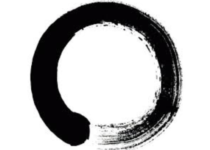being sensible
The idea of Pλosm is that every action has at its root either a logical rationalisation, or else it is an intuitive response which, by its nature, is irrational (but is still sensible*).
These are the two approaches of the ‘Scientist‘ and the ‘Muse‘, which is what the S and M stand for in Pλosm . The scientist works with Λόγος, and the muse works with the unknown, the Ouroboros — this is what the Λ and O stand for in Pλosm .
Likewise a society, through its government, making decisions is basing them on either a logical framework, resting on evidence or theory, or it is resting on some other consideration, some past cultural habit or zeitgeist.
Being rational is a relational matter — for instance, if a society is making decisions against its own interest (on its own terms), then it is being irrational. They might be still in the interest of a few individuals, or some other group, so it might seem to those individuals that the rational thing is being done.
Likewise an individual person can act against their own material interest — by any rational measure — by making a sacrifice for some other person or cause. To make such an irrational act might yet be sensible— it has appeal to the individual. But acting so can’t strictly be called rational.
When a person shows compassion to another without hope of any return, that is probably irrational. When a person dances wildly all night in a drunken frenzy, that is probably irrational. When a society allocates resources to something that is a detriment to nearly everyone in it, that is probably irrational.
There is actually no way to say with certainty, what basis a certain action has, whether it is truly rational or irrational. Because to say would be to have a rule, and rules are logical — and no logical tool can capture what it means to be acting sensibly on a basis which isn’t rational.
An original irrational act can then be reinforced with later justifications which go back to that original act and seek to rationalise it. Indeed all rationalisations point back to an earlier act or basis whose original rationality might be open to question.
Again, seeking to determine a certain logical framework of rationality is itself an act of rationality. The path of Pλosm is to balance this rational approach with the other side, the irrational yet sensible approach which cannot be explained in logical terms.
This is not to say that a logical framework is not possible or useful, just that it doesn’t service every occasion, that it is impossible to be rational all of the time and also be human.
There is no one person who can sustain either a rational approach or an irrational approach to everything all of the time. The pathway of Pλosm is a continual balance back and forth and the skill of the traveller is to decide how to act in each situation. Scientists also draw on their intuitive Muse, and Muses can be rational.

But each individual pathway might form a pattern which is more one or the other, and discovering our own nature is part of the journey. We also fall within a society which has its own pathway and that sets the scene for much of our own deliberation.
For instance, in a theocracy the rational path might be based on a theological reasoning, in that scenario, being ‘irrational’ might be to believe that there is no god.
At every moment we are confronted with the question, what is the ‘right’ thing to do in this situation. What is ‘right’ might be a rational thing or it might be the irrational thing. How do we know which to do?
The answer is that there is no rational answer, nor any faith based intuitive answer either. The answer is in-between these two answers. The answer is to be sensible. That is the path of Pλosm.
*’Sensible‘ when used here means that it makes sense to the person or body making the decision, not that it is ‘sensible’ according to some particular logical framework. Being irrational or immoral can still be sensible, in this definition.


